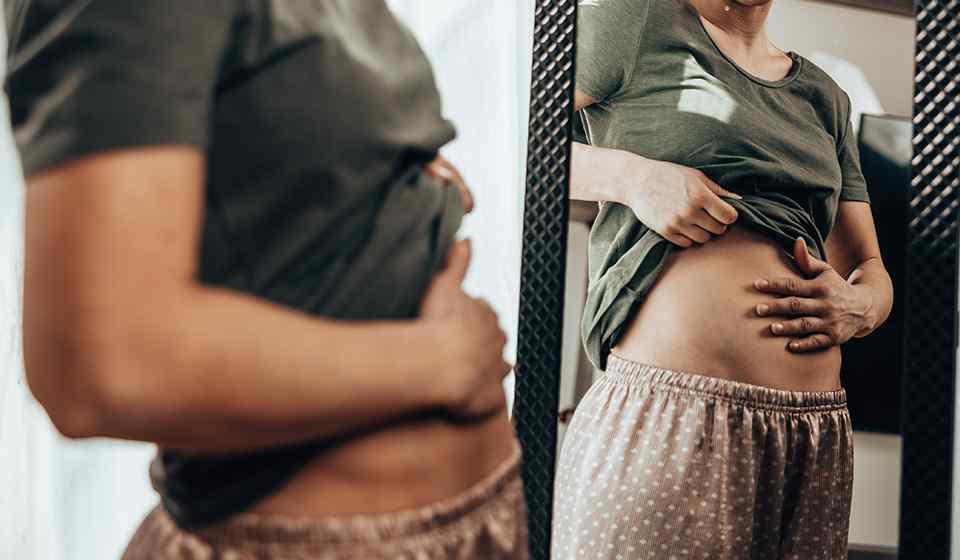It’s common for plastic surgery patients to experience post-operative bloating. From tummy tucks and liposuction to breast augmentations and facelifts, many cosmetic procedures can leave patients feeling uncomfortably bloated during healing. Luckily, there are several ways to find relief.
Causes of Bloating
There are a few key culprits that create abdominal bloating after going under the knife:
Anesthesia – General anaesthesia used during longer operations often involves intubation. This can slow digestion, create excess gas in the gastrointestinal tract, and instigate inflammation that contributes to temporary bloating.
Tissue Trauma – Any surgery that involves manipulating or removing tissue causes inflammation and internal swelling. Procedures on the abdomen and torso especially put pressure on organs, leaving them compressed and bloated.
Pain Medication – The pain medications prescribed after surgery, usually opioids, can actually worsen abdominal bloating. These drugs allow gas and waste to accumulate in the intestines which can lead to bloating. The lack of mobility after surgery also fails to stimulate the passage of waste.
Fluid Loss – Being restricted from eating or drinking after surgery often leads to some level of patient dehydration. As the body tries to overcompensate, it ends up retaining water rather than properly absorbing it, resulting in a puffy, bloated appearance.
How Long Does Bloating Last?
The duration of post-surgery bloating can vary greatly from person to person. While some patients bounce back from the bloat within days, others stay uncomfortable for weeks. The factors like your general health, prescriptions, activity level, and genetics all impact how quickly bloating improves.
Remember – plastic surgery is major bodily trauma! Be patient with changes like gas, indigestion and swelling, which can be recover as your tissues heal. However, If you’re experiencing persistent bloating that lasts for more than a few weeks, promptly notify your surgeon. Some post-surgical complications can cause serious problems.
Tips to Avoid Bloating
While some bloating during healing is unavoidable, patients can minimise discomfort with the following methods:
Light Exercise – Incorporating short, gentle walks can help can help stimulate your digestive system and reduce the accumulation of gas in your body. This helps reduce abdominal expansion from trapped gas.
Fluids – Staying proactively hydrated with plain water and electrolyte drinks keeps the digestive tract working efficiently. This prevents fluid retention and the pressure it puts on the abdomen.
Fibre – Consuming soluble fibre from foods like oatmeal, nuts, fruits, and cooked vegetables can ease constipation when it’s the cause of excessive bloating. But remember to increase your fibre intake gradually, as a sudden increase can sometimes exacerbate bloating
OTC Meds – Over-the-counter medications that contain simethicone can help break up the bubbles in gas and may help gas pass through your digestive tract.
Abdominal Massage – Gently massaging the abdomen in a clockwise motion can stimulate the movement of gas and waste through the intestinal tracts. Apply topical peppermint oil to assist.
Probiotics – Taking probiotic supplements maintain or improve the “good” bacteria to aid digestion and minimise gas production. This helps reduce bloat-inducing abdominal inflammation.
Prescriptions – For severe bloating not responding to other measures, doctors can provide medications that more aggressively minimise swelling or stimulate bowel movements to clear out waste accumulation.
Compression Garments – These garments worn around the midsection after surgery provide stability and put pressure on tissues to reduce post-operative inflammation. This can effectively minimise fluid retention and bloating.
Wrapping Up
Certainly, post-plastic surgery bloating is a common and expected occurrence. When you undergo a surgical procedure, the body’s response often triggers inflammation and fluid retention, contributing to the sensation of bloating. This tendency is particularly notable in surgeries like liposuction or abdominoplasty, where a significant amount of tissue manipulation occurs.
Furthermore, the use of anaesthesia, a standard practise in most surgeries, can contribute to the slowdown of your digestive system. It’s crucial to recognise that bloating is typically a temporary phase that gradually diminishes as your body progresses in its healing journey.
However, if bloating persists or is accompanied by severe pain or other concerning symptoms, reaching out to your surgeon is essential.

